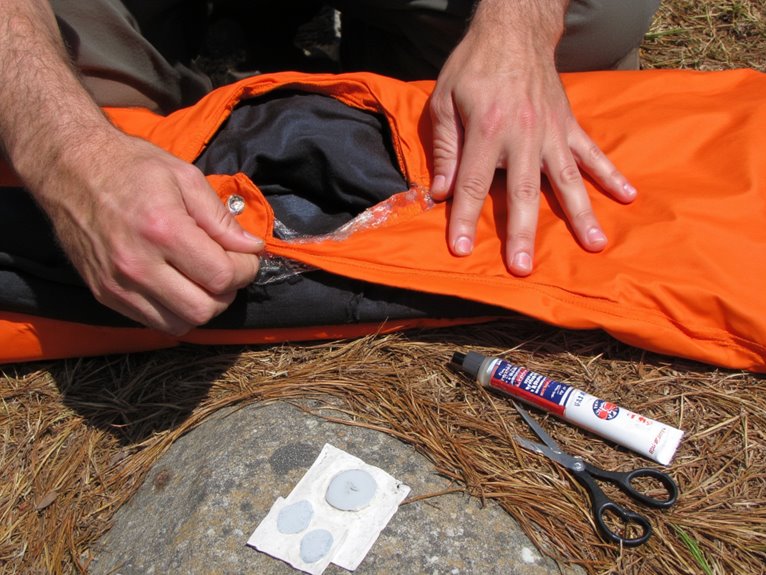How Accurate Is Geohash Length?
Geohash length substantially impacts location encoding precision, with longer geohashes achieving higher accuracy. A 32-bit geohash can pinpoint a location with an accuracy of around 1.2 kilometers, while a 64-bit geohash can achieve an accuracy of approximately 1.9 meters. However, geohash accuracy is also influenced by factors such as coordinate acquisition methods, the geohash algorithm, and nearby geographic features. Understanding the nuances of geohash length and its impact on precision and accuracy is vital for optimizing its use in location-based applications, and there's more to uncover about the intricacies of geohash length and its real-world implications.
We are supported by our audience. When you purchase through links on our site, we may earn an affiliate commission, at no extra cost for you. Learn more. Last update on 29th January 2026 / Images from Amazon Product Advertising API.
Understanding Geohash Length Basics
Derived from the latitude and longitude coordinates, a geohash is a compact string comprising a series of alphanumeric characters that encodes spatial information, with its length being a critical factor in determining the precision of the encoded location.
The longer the geohash, the more precise the location it represents. A shorter geohash, on the other hand, yields a broader geographic area.
Geohash length is typically measured in bits, with each bit adding to the precision of the encoded location.
A 32-bit geohash, for instance, can pinpoint a location with an accuracy of around 1.2 kilometers, while a 64-bit geohash can achieve an accuracy of approximately 1.9 meters.
Understanding the relationship between geohash length and precision is essential for effective spatial data encoding.
Factors Affecting Geohash Accuracy
While the length of a geohash is a primary determinant of its accuracy, several other factors also influence the precision of the encoded location.
The accuracy of these coordinates, in turn, depends on the method used to obtain them, such as GPS, triangulation, or manual entry.
Additionally, the geohash algorithm itself, including the base32 encoding scheme and the specific implementation, can introduce variations in accuracy.
Other factors, such as the presence of nearby geographic features or anomalies in the Earth's magnetic field, can also affect the accuracy of the geohash.
Precision Vs. Accuracy in Geohashing
In the context of geohashing, distinguishing between precision and accuracy is essential, as these two concepts are often conflated, yet they have distinct implications for the reliability of encoded locations.
Precision refers to the level of detail or granularity achieved by a geohash, measured by the number of bits used.
On the other hand, accuracy refers to the degree of closeness of the encoded location to the true location.
A geohash can be precise but inaccurate, or vice versa.
Understanding the difference between precision and accuracy is imperative in geohashing, as it directly affects the reliability of location-based applications.
Real-World Applications and Limitations
Geohashing has numerous real-world applications, from location-based services and mobile apps to logistics and supply chain management, where its precision and accuracy can substantially impact the efficiency and reliability of operations.
In these applications, geohashing enables efficient proximity searches, route optimization, and location-based filtering.
However, its limitations must be acknowledged, such as the trade-off between precision and storage efficiency, and the potential for errors in encoding and decoding.
Additionally, geohashing may not be suitable for applications requiring extreme precision, such as high-stakes navigation or surveillance.
In addition, its limitations in terms of precision and storage efficiency must be carefully considered.
Despite these limitations, geohashing remains a powerful tool for many industries, offering a balance between precision and efficiency.
Optimizing Geohash Length for Results
Optimizing geohash length is critical to achieving the desired balance between precision and storage efficiency, as even a single character can substantially impact the accuracy of location-based queries.
In practice, this means selecting a geohash length that accurately captures the required level of precision while minimizing storage overhead.
A shorter geohash may sacrifice precision, while an excessively long geohash can lead to wasted storage and decreased query performance.
By carefully calibrating geohash length, developers can strike an ideal balance between these competing demands.
This nuanced approach enables more efficient use of resources, faster query execution, and improved overall system performance.





